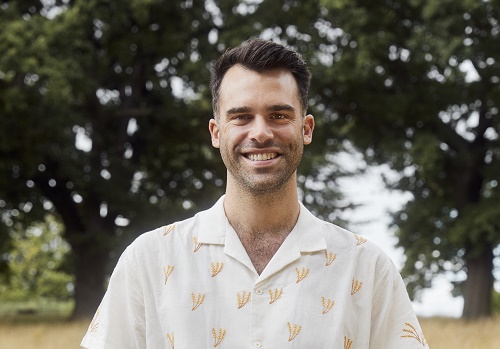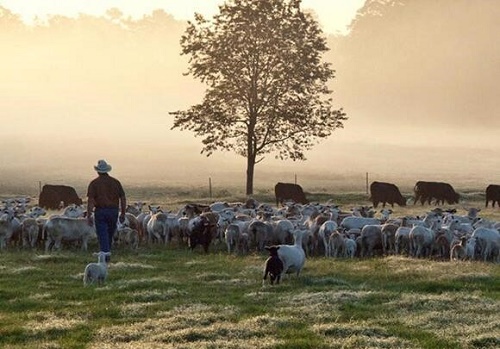With a mission of promoting environmental and economic stewardship through regenerative agriculture, Steward provides flexible loans to human-scale farms, ranches, fisheries, and food producers looking to propel their operations forward. With the help of the lending platform, funders can earn a return while equipping farms and ranches with capital for land, equipment, or operations. Along the way, the B Corp has successfully funded over 90 regenerative farms, totaling more than $25 million U.S. in financing as it promotes a more restorative approach to farming.
SEE Change recently spoke with Steward founder and CEO, Dan Miller, who’s also the co-founder of Fundrise, to learn more about the initiative and how it supports a burgeoning movement that embraces being more thoughtful about what we eat, healthy ecosystems and the power of food to build community.
Tell us about your background and the inspiration behind Steward. What gaps were you trying to fill?
The inspiration for Steward came through food as I traced the supply chain from a renowned farm-to-table restaurant to its producers. Even with increasing consumer demand, producers of sustainable, traceable agricultural products did not have access to capital. The need married with my knowledge of how to raise capital online from individuals, which I honed as co-founder of Fundrise, the first and largest US real estate crowdfunding platform. Additionally, my maternal family has been farming on the Eastern Shore of Maryland since the 1880’s, so working to raise capital for regenerative farms has become a way to reconnect with my roots. Put it together and you have the genesis and motivation behind Steward.
What is it about regenerative agriculture that makes it such an important focus for you and an approach growing in popularity?
Regenerative agriculture is the belief that if farming is focused on soil health and biodiversity, the result will be high-quality, nutritious food that sustains people and the land, and offers improved income to producers. This is counter to conventional agriculture which focuses on high-volume production of industrial commodities sold through intermediated global supply chains at razor thin margins. One is restorative, the other is exploitive. How we treat land impacts many cultural, economic and ecological issues, and regenerative agriculture is a direct and tangible way to make meaningful improvements to these seemingly intractable issues.
What type of services does Steward offer? When would a client come to you?
Our goal at Steward is to put values-aligned capital in the hands of regenerative producers. We do that by making commercial loans to regenerative farms with capital raised online from our network of thousands of individual lenders, who purchase loan participations which share the economic risk and return. Every day new farms apply for funding, with a majority coming through referrals.
We had been speaking with White Oak Pastures off and on for almost a year, and all of a sudden they needed $1 million of working capital to make it through the busy summer season. In 18 days, we raised $1.2 million from 430 participants at a 7.5% interest rate, with the loan secured by a first mortgage on property. The funding filled an urgent capital need which enabled White Oak to continue their rapid direct to consumer sales growth without hiccups. I’m proud to support longtime industry leaders such as White Oak and its 100-plus employees.
Can you quantify the impact you’ve had so far?
Measuring impact can be difficult, because the regenerative producers we work with are understaffed and undercapitalized, so they don’t have the time or money or take measurements for third-party reporting. We focus on transparency and the positive externalities that result from regenerative land stewardship.
For example, one of the first loans Steward made was to Fisheye Farms, an urban farm in Detroit, to expand from .1 to 2 acres. Fisheye took a piece of degraded land and turned it into a highly productive farm and vibrant community hub with direct sales to local residents in a food desert, all while paying a fair return to lenders. We believe in symbiotic outcomes that are positive from an economic, ecological, and cultural perspective.
What is your hope for the future of your business and regenerative agriculture?
The future is bright. Particularly since the pandemic, there has been a huge increase in awareness of how precarious our industrialized food system has become. To date Steward has funded over 90 projects totaling more than $25 million, nearly half of which are run by farmers who come from non-farming backgrounds. That to me is an indicator that a new generation is taking on the important work of land stewardship and turning away from corporate jobs for ones with more meaning and tangible impact.
Though regenerative agriculture is still nascent and only represents a few percent of the overall agricultural market, it is growing rapidly and has generational momentum behind it as people become more thoughtful about what they eat, more aware of the importance of healthy ecosystems, and more understanding of the power of food to build community.
I am hopeful that in the decades to come Steward and our network of lenders will greatly accelerate the adoption of regenerative agriculture to make it the dominant form of agriculture, with billions of dollars flowing from mission-aligned individuals to high impact projects.


